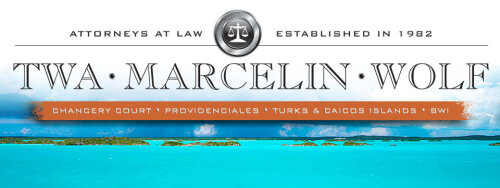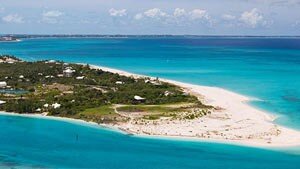Best Admiralty & Maritime Lawyers in Providenciales
Share your needs with us, get contacted by law firms.
Free. Takes 2 min.
List of the best lawyers in Providenciales, Turks and Caicos Islands
About Admiralty & Maritime Law in Providenciales, Turks and Caicos Islands
The Turks and Caicos Islands, located in the northern Caribbean, are well known for their crystal-clear waters and vibrant maritime activity. Providenciales, the most developed island, acts as a key hub for shipping, yachting, fishing, and tourism. Admiralty and Maritime law in this context involves the rules and legal frameworks that govern these activities on the water. This includes everything from vessel registration and operation to salvage, collision, pollution, charter agreements, and crew matters. The legal landscape is influenced by both local legislation and aspects of British maritime law, given that the Turks and Caicos Islands are a British Overseas Territory.
Why You May Need a Lawyer
Several situations may arise on the waters of Providenciales that require the expertise of an Admiralty and Maritime lawyer. These can include disputes over vessel ownership, accidents or collisions at sea, crew employment issues, salvage claims, pollution incidents, customs and regulatory matters, arrests of vessels for unpaid debts or contractual issues, and insurance claims related to maritime activities. Whether you are a commercial shipping operator, private yacht owner, marine business, fisherman, or passenger, legal support can help you understand your rights and obligations, negotiate settlements, comply with regulatory requirements, or represent your interests in court.
Local Laws Overview
Admiralty and Maritime matters in Providenciales are primarily governed by local ordinances such as the Merchant Shipping Ordinance and supporting regulations. These laws are supplemented by applicable UK maritime statutes and principles where local law may be silent. Key legal aspects include:
- Vessel Registration and Documentation - All vessels operating commercially or for pleasure must be properly registered with the authorities.
- Maritime Liabilities - Laws provide frameworks for collision claims, salvage rights, towage, and pollution liability.
- Crew and Employment - Regulations exist around crew employment contracts, safety, and welfare, often aligned with international conventions.
- Port and Customs Regulations - Clearances, duties, and inspections are enforced to ensure vessel compliance and safety.
- Marine Environmental Laws - Strict rules exist about pollution, waste disposal, and protection of marine parks and reefs.
- Arrest and Detention of Vessels - Ships can be arrested for unpaid debts or disputes, offering creditors a means to enforce maritime claims.
Navigating these rules often requires local knowledge and legal expertise due to the combination of British legal influence and local procedures.
Frequently Asked Questions
What types of vessels need to be registered in Providenciales?
All vessels, whether commercial or pleasure craft, must be registered with the local maritime authority if they are based or primarily operating from Providenciales.
What should I do after a maritime accident or collision?
Seek medical attention if necessary and report the incident to the local marine police or port authority. It is also wise to contact a maritime lawyer to help document the event and protect your legal interests.
Can a ship be detained in Providenciales for unpaid debts?
Yes, under Admiralty law, vessels can be arrested or detained in the Turks and Caicos Islands by court order for unpaid debts or contractual disputes.
Who is responsible for marine pollution incidents?
The party responsible for a pollution incident is usually the owner or operator of the vessel. There can be significant legal and financial consequences, including fines and cleanup costs.
Are there special rules for crew employment and welfare?
Yes, local laws and international conventions require that crew have written contracts, safe working conditions, and appropriate rest and welfare arrangements.
What is salvage and how are salvage claims handled?
Salvage is the act of helping a vessel in distress or recovering property lost at sea. Salvors may be entitled to a reward, which is usually determined by agreement or by the court under local law.
Do insurance policies cover all maritime incidents?
Maritime insurance policies vary, so it is important to review your cover. Some policies have exclusions or special conditions for certain activities or incidents.
Are there restrictions on foreign vessels entering Providenciales waters?
Foreign vessels must comply with customs, immigration, and maritime regulations when entering the Turks and Caicos Islands. Clearance must be obtained before disembarking or engaging in activities.
What if a charter dispute arises?
Charter agreement disputes can often be resolved through negotiation or mediation but may require legal action in local courts if no resolution is reached.
How are marine environmental regulations enforced?
Local authorities actively patrol and monitor protected areas, issuing fines and taking legal action against those who violate regulations relating to fishing, pollution, or marine conservation zones.
Additional Resources
If you need more information or support regarding Admiralty or Maritime law in Providenciales, the following resources can be helpful:
- Turks and Caicos Islands Maritime Authority - The official agency for vessel registration, maritime inspections, and local regulations.
- Department of Environment and Coastal Resources - Responsible for marine environmental protection, permits, and monitoring.
- Turks and Caicos Islands Customs Department - Manages import duties, vessel clearances, and compliance with maritime arrival procedures.
- Local law firms specializing in maritime and shipping matters.
- Marine Police - Handles accidents, emergencies, and enforcement of maritime laws.
- The local courts, which have jurisdiction over Admiralty and Maritime disputes.
Next Steps
If you find yourself involved in a maritime issue or simply need guidance on your rights and responsibilities in Providenciales, it is important to act quickly and seek professional legal advice. Begin by gathering all relevant documentation relating to your issue, such as registration papers, agreements, incident reports, and correspondence. Then, consider reaching out to a local lawyer who specializes in Admiralty and Maritime law. They can explain your options, outline potential strategies, assist in negotiations, and represent you in court if necessary. Timely legal advice can help you avoid pitfalls, protect your interests, and achieve a favorable resolution.
Lawzana helps you find the best lawyers and law firms in Providenciales through a curated and pre-screened list of qualified legal professionals. Our platform offers rankings and detailed profiles of attorneys and law firms, allowing you to compare based on practice areas, including Admiralty & Maritime, experience, and client feedback.
Each profile includes a description of the firm's areas of practice, client reviews, team members and partners, year of establishment, spoken languages, office locations, contact information, social media presence, and any published articles or resources. Most firms on our platform speak English and are experienced in both local and international legal matters.
Get a quote from top-rated law firms in Providenciales, Turks and Caicos Islands — quickly, securely, and without unnecessary hassle.
Disclaimer:
The information provided on this page is for general informational purposes only and does not constitute legal advice. While we strive to ensure the accuracy and relevance of the content, legal information may change over time, and interpretations of the law can vary. You should always consult with a qualified legal professional for advice specific to your situation.
We disclaim all liability for actions taken or not taken based on the content of this page. If you believe any information is incorrect or outdated, please contact us, and we will review and update it where appropriate.









